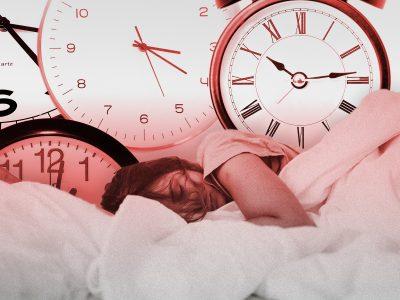Every morning that I’ve woken up for class since I started college, I think about how hard high school was. More specifically, my high school schedule. I wonder how I did it — my daily pattern for years had started with waking up at 6:30 a.m. — a feat that seems impossible to me now.
As someone who could quite literally sleep through an earthquake, sleep has always been the answer to all my problems. Whether I was sick or stressed, sleep was constantly my solution when I was younger.
This habit didn’t change when I arrived at college.

In an environment where I feel constantly immersed in my academics, at many times, I feel as though sleep is my only escape. With no one to tell me when to wake up or stick to a routine, I fell into crazy sleep schedules — always sleeping too much or too little. Late nights of homework kept me up, while movie marathons were to blame for other sleepless nights. Early morning alarms led to falling asleep before dinner and on some days, I woke up as the sun made its descent. My sleeping habits became so erratic that I began to ask myself — “Is this okay?”
I’ve always had a complicated relationship with sleep. While I needed it badly, I hated how much of it was necessary to become the version of myself I liked best. Lacking it made me feel drained and irritable. My social battery was basically nonexistent on days I had early mornings. But on the other hand, getting more than eight hours made me feel lazy, guilty and sometimes even worse than the days when I didn’t get enough sleep.
Since I’ve gotten to college, many of those feelings have been magnified. There’s a suffocating guilt that comes with waking up to a quiet room while my roommate’s bed is clean and made and her backpack is gone. I felt pressured to live as efficiently and busily as my other peers and got frustrated when my body wouldn’t allow it. I wondered what the difference was between myself and others, and feared that it could be a matter of motivation.
Was it something I could do but just wasn’t doing? Did I lack a certain strength that my peers had? Why was it that I could never keep the promises I made before I went to bed when I woke up in the morning? The feeling of getting my life together at night always dissipated when I woke up, and I hated that the reason could just be me not trying hard enough.
It took my entire freshman year to realize that it was a more complicated question than that. Prioritizing my health, both physical and mental, was most important, no matter what. I liked who I was on days I got the sleep I needed. I felt more productive, more rested throughout the week. I liked that I could divide my energy toward multiple things, and I liked that I didn’t get headaches at the end of the day. I stopped comparing myself to peers because we were incomparable and different — both in terms of our needs and our capabilities. For example, I wake up later than my roommate but I don’t take naps like she does.
Sometimes the guilt lingers, especially when I go to bed early yet still wake up late. I remind myself that I’m not behind because of it — and if I am, it’s not impossible to change. The goal is to avoid procrastinating on assignments or skipping class, and instead focus on getting the rest that makes me feel refreshed and like myself.






















































































































